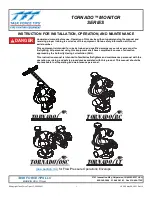
a Noise filter
Noise reduction is performed by a digital
second
order
low pass filter
with an adjustable cut
off
between
5.5
and
16
kHz.
At 44.1-kHz:5.5; 6,-6.5;
7 8 , 9 ; 10,-11712;.13,14;.15
kHz
At 48 kHz: 6,
6.5,
7, 8, 9,
10,
11, 12, 13, 14, 15,
16 kHz
This
filter is useful in reducing the surface
noise
from
old
gramophone
records
(78s).
Compared
with
an
analogue
solution this
digital
implementation of
the
noise
filter ensures that neither extra
audible
noise
n o r
channel
differ
‑
ences in terms of gain,
offset, frequency or
phase response will occur.
=
Stereo
enhancement
This
function creates a stereo
effect from a
m o n o
recording.
Three
ele
‑
ments
are
involved:
1.
Common phase
between
left
and right
channel
is avoided.
2.
Room/wall
reflections are added,
for instance
left loudspeaker to
left
ear. This
creates
some
spaciousness.
3.
Room/wall
reflections
are
added
for right loudspeakers to
left
ear
and
vice
versa.
= Compression/Expansion
The
Sound
Enhancer
is fitted
with
a fixed set of 10 expansion
and
compression curves.
The
curves
are
presented in figures
6.4
and
6.5.
The
normal
(stereo)
situation is
presented
by
the
straight line
in
each
diagram. It is possible
either
to
expand or to compress
the audio
by a
factor of t w o
( m a x i m u m
setting), as
the diagrams
show.
For instance:
COMPRESSION
a A of 10 GBat the input will result in
a A of 5 GBat
the output.
EXPANSION
a A of 10 GBat the input
will
result in
a A o f 2 0 d B a t
the
o u t p u t
Each
step
on
the LED
display
corresponds
with
one
curve,
the
amount
of
expansion
or compression as a
percentage
of the input
signal is
shown
in figure
6.6.
Summary of Contents for IS 5022 Mark II
Page 6: ......
Page 22: ......
Page 30: ......
Page 37: ... B 3 zs 3 E S Y Figure 6 4 Compression curves Figure 6 5 Expansion curves ...
Page 39: ...10 0k 20 0k 1 0k 100 0 20 0 Figure 6 7 Bass Treble Filter curves ...







































